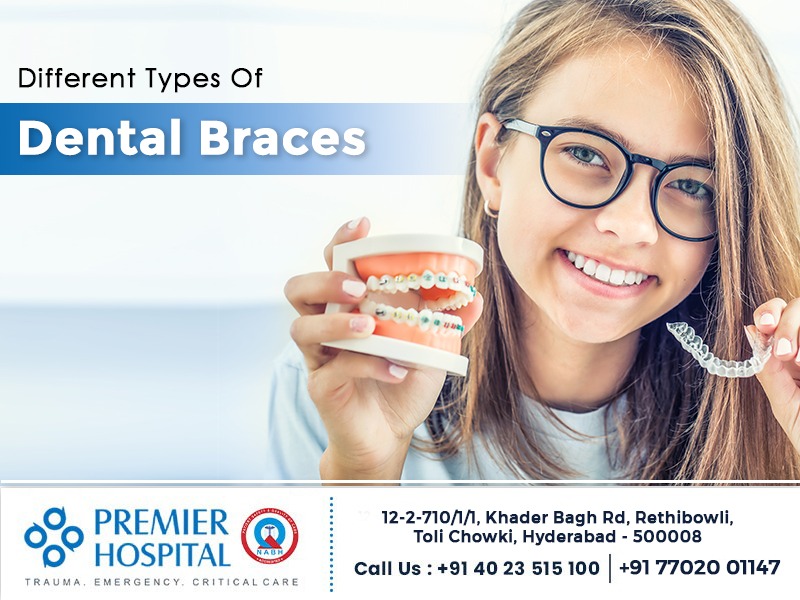Different Types of Dental Braces
by Premier Hospitals | October 11, 2021 |
A dental brace is a device that is used to straighten teeth. We all wish to have an attractive smile which is possible with perfectly arranged teeth. However, some people might not have that perfect set of teeth. With the advancement in dental technology, they have introduced dental braces. The teeth are aligned and positioned with the help of these dental braces. Properly arranged teeth last longer and function better. A dental brace is a wire-based device used by orthodontists to align crowded and crooked teeth (malocclusion) or jaws. People who want to wear dental braces mostly get them in their teenage years. However, braces can also be beneficial for adults. The main purpose of dental braces is to achieve a proper alignment of your teeth and jaws so that you can have an even bite and pleasing smile. A variety of dental braces are available, from traditional metal braces to Invisalign braces. They are no longer viewed as fear for teens. Braces are one of the most effective ways to achieve permanently aligned teeth. There are five main types of braces, and each comes with its own set of advantages and disadvantages, which need to be considered before choosing a particular type of brace. Metal BracesÂ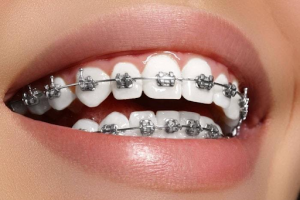 These are also known as “Traditional Dental Braces†and it is a combination of metal brackets and archwires that are used to straighten your teeth. They are manufactured with high-grade stainless steel. In orthodontic treatment, these braces are one of the least expensive options available.
The patient must be extra careful with food intake once the device has been installed. It is recommended not to eat gum and caramel because they may stick to the brackets. Foods that are difficult to eat could result in bracket dislodgement, so the patient should avoid them.
Ceramic Braces
These are also known as “Traditional Dental Braces†and it is a combination of metal brackets and archwires that are used to straighten your teeth. They are manufactured with high-grade stainless steel. In orthodontic treatment, these braces are one of the least expensive options available.
The patient must be extra careful with food intake once the device has been installed. It is recommended not to eat gum and caramel because they may stick to the brackets. Foods that are difficult to eat could result in bracket dislodgement, so the patient should avoid them.
Ceramic Braces
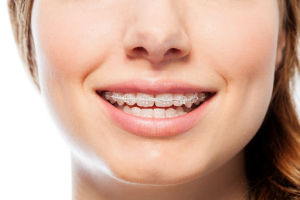 Braces of this type are popular alternatives to metal braces. The main advantage of ceramic braces over the regular type is that they are manufactured with tooth-coloured material, making them more barely noticeable.
As these brackets are tooth coloured, they can easily blend with the teeth and they come in the same size and shape similar to metal brackets. However, the cost of these braces is higher than the traditional metal braces. Ceramic Braces can easily become stained if healthy oral hygiene is not maintained.
Lingual Braces
Braces of this type are popular alternatives to metal braces. The main advantage of ceramic braces over the regular type is that they are manufactured with tooth-coloured material, making them more barely noticeable.
As these brackets are tooth coloured, they can easily blend with the teeth and they come in the same size and shape similar to metal brackets. However, the cost of these braces is higher than the traditional metal braces. Ceramic Braces can easily become stained if healthy oral hygiene is not maintained.
Lingual Braces
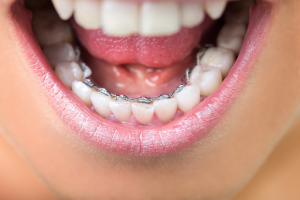 Lingual braces are similar to metal braces. These types of braces can be customized and are mounted lingual side (behind the teeth) so that they are not visible. An experienced and skilled orthodontist can install them with perfection. The lingual braces have the disadvantage of cleaning difficulty and they are quite expensive. Initially, they may seem to be uncomfortable but eventually, patients get used to them. The adjustment period is longer compared to traditional braces.
Invisalign
Lingual braces are similar to metal braces. These types of braces can be customized and are mounted lingual side (behind the teeth) so that they are not visible. An experienced and skilled orthodontist can install them with perfection. The lingual braces have the disadvantage of cleaning difficulty and they are quite expensive. Initially, they may seem to be uncomfortable but eventually, patients get used to them. The adjustment period is longer compared to traditional braces.
Invisalign
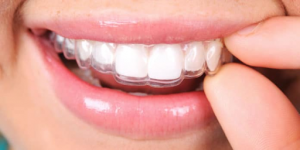 In addition to all of the above, INVISALIGN is the other type of braces which consists of 15-30 custom-made, clear plastic aligners that look like customized mouth guards. The Invisalign braces can be replaced every 2-3 weeks.
Often, patients find them to be the most comfortable. Unfortunately, these types of braces are not suitable for more severe dental problems. Their price is much higher than other types of braces. Usually, these braces require a prolonged treatment period in comparison with other types.
Self-ligating Brace
In addition to all of the above, INVISALIGN is the other type of braces which consists of 15-30 custom-made, clear plastic aligners that look like customized mouth guards. The Invisalign braces can be replaced every 2-3 weeks.
Often, patients find them to be the most comfortable. Unfortunately, these types of braces are not suitable for more severe dental problems. Their price is much higher than other types of braces. Usually, these braces require a prolonged treatment period in comparison with other types.
Self-ligating Brace
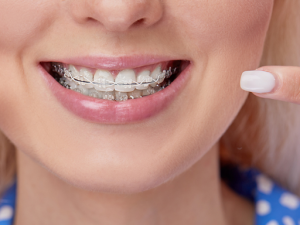 Self-ligating braces have similar qualities to metal and ceramic braces. They are available in two different types of materials metal and ceramic. Braces and wires are used to move the teeth with these treatments as well. The main differentiation between self-ligating and metal or ceramic braces is that doors or clips are used in self-ligating braces to hold the wire in place, instead of rubber ties.
We know that self-ligating braces are easy to adjust and as a result, the appointments are mildly shortened. These braces are more suitable choice for:
Self-ligating braces have similar qualities to metal and ceramic braces. They are available in two different types of materials metal and ceramic. Braces and wires are used to move the teeth with these treatments as well. The main differentiation between self-ligating and metal or ceramic braces is that doors or clips are used in self-ligating braces to hold the wire in place, instead of rubber ties.
We know that self-ligating braces are easy to adjust and as a result, the appointments are mildly shortened. These braces are more suitable choice for:
- People who are intolerant of discomfort
- People who have difficulty sitting still in a dental chair for long periods of time
- People with developmental disabilities and orthodontic needs



















